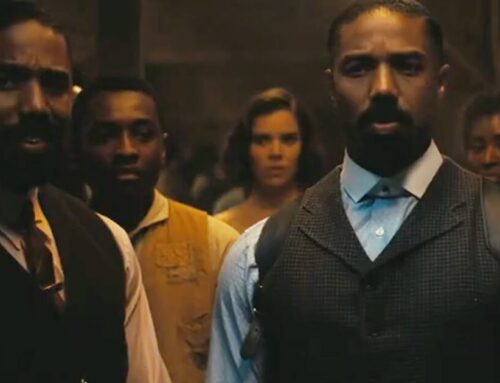It’s one of the most talked about movies of the year and almost universally praised:BOYHOOD–and it’s mesmerizing. Oscar-nominated writer/director Richard Linklater has once again focused on the evolution of characters over time. Linklater, who gave us the “Before” trilogy (“Before Sunset,” “Before Midnight,” “Before Sunrise”) has here traced the growing up of a young Texas boy named Mason from the age of 6 to the age of 18– using the same cast of characters over 12 years!
The resulting film captures something ineffable onscreen: the tropes of childhood and life– by turns illuminating, dull, frightening, embarrassing, mysterious– all of it unspooling over real time, condensed onscreen to a leisurely 2 hours and 44 minutes. We see the actors physically change and age, bringing whatever an actor brings of his own real life to a part– blurring that line between reality and fiction and making it clearer at the same time.
The logistics of the effort must have been staggering and surely a singular achievement in the annals of film history. The cast includes Ethan Hawke and Patricia Arquette as Mason’s parents, Linklater’s own daughter Lorelei as Mason’s sister Samantha, and the soulful Ellar Coltrane as the little boy we watch grow up on screen. The story is set in Texas where Mason’s parents have split up and we watch the boy endure the emotional and psychic fallout of a broken home, an exhausted and angry mother, a bossy little sister, and an often missing but affectionate father whose mistake appears to have been that of a young man whose girlfriend became pregnant and who married before he himself had grown up.
Conditioned as we are to the flamboyant conventions of onscreen drama, we expect the unexpected at every turn. Will there be a horrible car accident? A murder? A climactic tragedy upon which the rest of the action will pivot? No, Linklater has his eyes set on the more subtle dramas that shape our everyday lives, and he holds us there, focusing our gaze on a point just below the horizon, where our lives are lived, often unobserved. That is truly unexpected.
Linklater was surely blessed to have found an actor as supple as the young Ellar Coltrane to draw our gaze inward. He is a physically beautiful child, gentle, introspective and grows into a sensitive but substantial teen forced to withstand the “parade of drunken assholes” his mother lets through the front door. There’s a terrifying scene at the dinner table that we know will harden Mason’s heart, and a gut-wrenching impromptu haircutting sequence that cut me to the quick.
The drum that beats continually throughout is a question: What’s the point? What is the point of a life, an accumulation of days, some aimless, some shocking and difficult, and relentlessly moving forward? The last scene suggests a response, packing the punch of an answer hiding in plain sight. Do not miss BOYHOOD.






[…] BOYHOOD: Richard Linklater’s extraordinary “12 years a film” feat! He directs the same cast over a dozen years and captures the ephemeral truth about one boy’s childhood and growing up in a broken home. It’s another “meta” experience for filmgoers who watch the actors and the characters they play age on camera over time, while the boy played by the soulful Ellar Coltrane–expressive and engaging at every age– evolves from a dreamy 6 year old to a substantial young man of 18. The resulting film captures something ineffable onscreen: the more subtle dramas that shape our everyday lives, and the filmmaker holds us there, focusing our gaze on a point just below the horizon, where our lives are lived, often unobserved. The drum that beats continually throughout is a question: What’s the point? What is the point of a life, an accumulation of days, some aimless, some shocking and difficult, and relentlessly moving forward? The last scene suggests a response, packing the punch of an answer hiding in plain sight. […]
[…] BOYHOOD: Richard Linklater’s extraordinary “12 years a film” feat! He directed the same cast over a dozen years and captured the ephemeral truth about one boy’s childhood and growing up in a broken home. It’s a “meta” experience for filmgoers who watch the actors and the characters they play, age on camera over time, while the boy played by the soulful Ellar Coltrane–expressive and engaging at every age– evolves from a dreamy 6 year old to a substantial young man of 18. The resulting film captures something ineffable onscreen: the more subtle dramas that shape our everyday lives, and the filmmaker holds us there, focusing our gaze on a point just below the horizon, where our lives are lived, often unobserved. The drum that beats continually throughout is a question: What’s the point? What is the point of a life, an accumulation of days, some aimless, some shocking and difficult, and relentlessly moving forward? The last scene suggests a response, packing the punch of an answer hiding in plain sight. […]